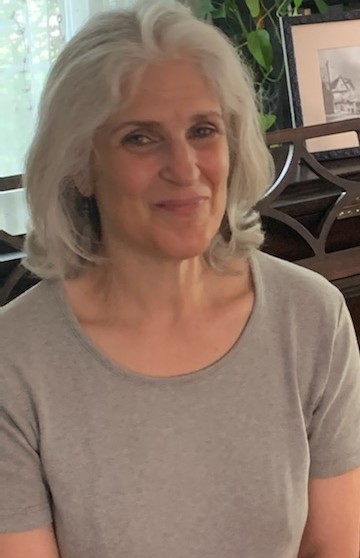Samuel Washington Allen Prize, selected by Lillian-Yvonne Bertram
Cerebral Hemorrhage
1.
In the room with the drawn curtains, my mother wakes
enough to ask what’s happened to her,
but You hurt your head
is the farthest her mind can travel.
She lets me feed her
without wondering why,
lets the nurse balance her on a bedpan
without acting shy.
She laughs
when she can’t stand up without help.
Says her legs must have fallen asleep.
2.
When the clusters of doctors come making their rounds,
she apologizes that there aren’t enough chairs.
She lifts an upturned palm, gestures—Have you met
my husband? My daughter?
She lets them ask all their questions, feel her pulse,
shine their lights in her eyes,
then says she’s sorry she can’t offer
coffee or tea.
When they smile their goodbyes,
she invites them to visit again.
3.
On the phone, her talk floats, changes course
like blown soap bubbles. Then—
her voice gone. Someone else’s
laughter comes near,
draws hers. She drifts
toward whoever is taking
her pulse, lifting her spoon.
She does not hear me
calling
into the receiver,
trying to say
goodbye.
I stand in my kitchen,
phone to my ear,
listening
to the room she is in.
4.
Don’t worry,
on discharge your mother will be given prescriptions
for a visiting nurse, PT, OT, Speech.
They’ll come to wherever your family decides
to move her.
Do you know where you’ll move her?
Does she have a stair lift at home?
A downstairs shower?
Will her wheelchair fit through the doorways?
don’t cry
even if her home were suitable, we wouldn’t advise
impulsive
a blindness to her own
the risk of
given his age, and hearing loss, your father
couldn’t
5.
She tries to sit in sunlight, but it never stays
where she left it.
Her room feels too dim.
She leans to open the blinds,
knocks over the bowl of blue marbles.
As she reaches to gather them up,
her hand knocks them farther away.
6.
Week by week, her grasp,
stronger,
the rattling
louder—
Everything
she cannot hold. Everything
she once held
with ease.
7.
My mother—but not
my mother.
Her heart, her strength, her
wit, and yet—
What she says when—
Or what she doesn’t seem to—
The way her smile—
the set of her jaw—
the timbre of her voice—
So much sorrow.
I hold her close.
If I can name what I miss,
will I know where to look—
how to find it in her?
8.
She can’t be happy
that she now writes tottery words
in a sloping scrawl
because she can’t remember
that, for weeks,
she couldn’t—
only that, almost
yesterday
she could jot names and numbers
while on the phone,
could list her daily to-dos,
could paint sunflowers, a porcelain vase,
green ripples of ribbon
framing an old woman’s face.
9.
In the hospital, she didn’t believe
in her stroke
in spite of her wheelchair,
her bedpan,
her idle left hand.
Now, three months after
the bleed in her brain,
she quietly seethes.
She wants
a road back. Restitution.
Someone to curse. Someone
to kick in the teeth.
10.
She tells me she cries
in the bathroom each morning,
a towel pressed tight
to her mouth.
In this thin-walled place, she can go nowhere
to tear out her hair,
to pound her fists
to open her lungs and
scream.
11.
Her days break
into individual tasks,
into individual portions
of tasks. When I visit
she stops part-way through
her methodical process of getting
dressed, or washing
her hands, or sorting the mail
to tell me about the order
of her movements, the order
she’s trying to impose
on her hours,
so that she’ll get better,
so that she’ll remember,
though she doesn’t remember
that I know
what she’s going to say,
that she’s said it already,
last month, last week, yesterday.
12.
She plans and plans
to go home.
Again and again, her circling
words, recurring dreams
of return.
13.
Nobody wants this battle.
So I am the one
to take my mother’s arm, to walk her
again to the border, point out the new barriers,
yellow warning signs. How the ground
she once knew is now planted with mines.
But her mind veers away
from belief. She was just there, not long ago,
washing windows, raking leaves.
She is sure, if she tries hard enough,
she can live as before.
Each time I refuse
to help her cut through the barbed wire, to go
just as far as those fir trees, the brown house
in their shade, I don’t know
how her gaze will shift,
how either of us
will bear
whatever comes next.

Jennifer L Freed’s recent poetry has appeared/is forthcoming in various journals including Atticus Review, Comstock Review, MER Vox, Rust + Moth, The Worcester Review and others. Her chapbook, These Hands Still Holding (Finishing Line) was a finalist in the 2013 New Women’s Voices competition. She has recently completed a full-length manuscript of poems related to her mother’s cerebral hemorrhage in 2018.
